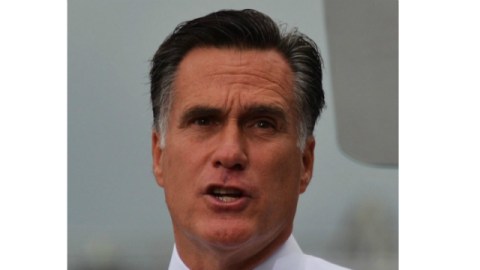Why the Republicans Lost

A Failed Voting System in the Primaries Selects Less-Popular Candidates
Mitt Romney won the Republican nomination after building momentum in the primaries in New Hampshire, Florida, Colorado, Arizona, Michigan, and Ohio — states where he won most or all of the delegates even though his percentage of votes from these states was, respectively: 39%, 46%, 35%, 47%, 41%, and 38%.
The Republican party is at a crossroads after losing a presidential election they should have won. But in the wake of Tea Party polarization, they nominated a candidate who may not have had broad overall support even within his own party. Republicans must ask themselves, “Who would we rather nominate — a candidate who is loved by 35% of us and disliked by everyone else or a candidate who is liked by 70% of us?”
This is an essential question. Currently, a candidate who is broadly well-liked within the Republican party but is fewer voters’ favorite choice has little chance of winning the nomination, because Republican voters are forced to vote for only one candidate in the primaries. Consider the following example, actual results from the ever-important New Hampshire primary:
Romney – 39% of votes
Paul – 23% of votes
Huntsman – 17% of votes
Clearly, under the current voting system, Romney won somewhat handily. But now, let’s assume the following:
Romney – Loved by 39% of voters, liked by 10% of other voters
Paul – Loved by 23% of voters, liked by 40% of other voters
Huntsman – Loved by 17% of voters, liked by 60% of other voters
In this new example, Romney has support from only 45% of the overall voters (39% love him + 6.1% like him; 10% of the 61% of voters who did not vote for him), but Paul has support from 54% of the overall voters, and Huntsman has support from 67% of the overall voters. Who should win the primary? Which candidate has the broadest overall support amongst Republicans, and who would be the most likely to win in a general election?
Get Rid of the Overvote Rule
A simple way to nominate the candidate with the broadest overall support is to get rid of the overvote rule; that is, allow voters to vote for any and all candidates that they approve of. This is called Approval Voting. The candidate with the most approval votes wins. Now, Republicans would have a clear sense of which candidate had the broadest overall support within their own party.
New Hampshire and the Republican Party in other states should get rid of the overvote rule for primaries and allow voters to vote for any and all candidates on the ballot that they approve of.
How to Apportion the Delegates
The Republican Party in many states, such as New Hampshire, currently apportions delegates based roughly on the percentage of popular vote. In 2012 Romney received 7 delegates (with 39% of the vote), Ron Paul received 3 delegates (with 23% of the vote), and Jon Huntsman received 2 delegates (with 17% of the popular vote).
However, instead of awarding delegates based on the percentage of popular vote, Republican primaries should award delegates based on the percentage of approval votes.
To determine how many delegates each candidate should receive, states should simply add up the approval votes for each candidate as well as the total approval votes for all candidates. They should then apportion delegates accordingly. Consider the following example, assuming these are the only three candidates on the ballot:
Romney – 75,000 approval votes
Paul – 100,000 approval votes
Huntsman – 150,000 approval votes
Romney would receive roughly 23% of the delegates (75,000 approval votes/325,000 total approval votes), Paul would receive roughly 31% of the delegates, and Huntsman would receive roughly 46% of the delegates. Because voters can now vote for any and all candidates that they approve of, these figures are much more reflective of the true will of Republican voters. Is this not more fair than the current system?
Time to Innovate
Republicans are, historically, an innovative political party, willing to adapt in order to win future elections. Using Approval Voting in Republican primaries would ensure that Republicans nominate candidates with broader overall support within their own party. And candidates who are more generally-liked within the Republican party are likely to fare better in general elections, where they will have to gain support from an even wider range of voters to win.
If the Republican party wants to compete in and win future elections, their best way to do so is to use Approval Voting to nominate candidates who are more broadly-liked by the electorate.
***
Eric Sanders is a New York City-based screenwriter, playwright, and producer who has been active in the voting reform movement since 2005. He is a Board Member of The Center for Election Science, a nonpartisan nonprofit dedicated to election-related scholarship.




